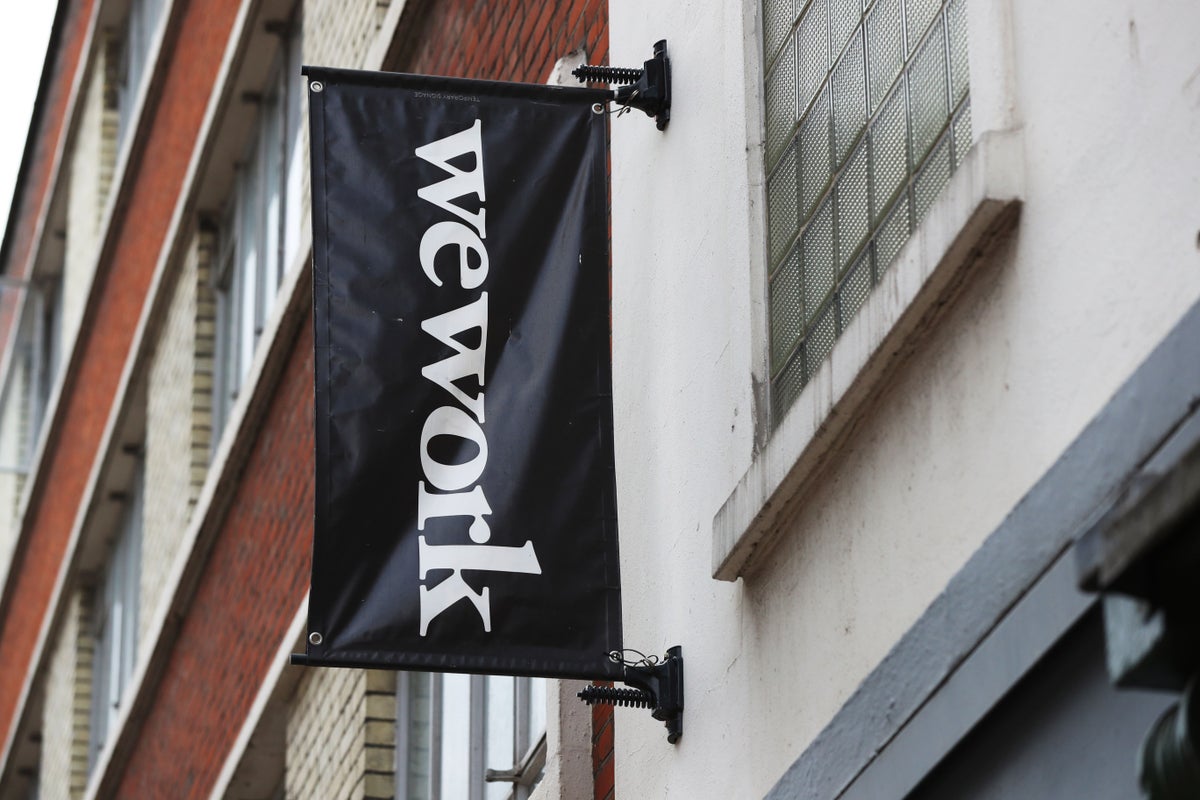
Office sharing company WeWork has filed for Chapter 11 bankruptcy protection in the US after struggling with a huge debt pile and mammoth losses.
The US-listed firm said in a statement overnight that it had entered into a restructuring support agreement with stakeholders to “drastically reduce” the company’s debt while further evaluating its commercial office lease portfolio.
WeWork is requesting the “ability to reject the leases of certain locations”, which the company says are largely non-operational.
Filing for a Chapter 11 bankruptcy means a company intends to reorganise its debts and assets to have a fresh start, while remaining in business.
It did not give details on the number of locations that would be impacted by the move.
The group said the filing only affects its US and Canada operations, with its business in the UK and Ireland running as usual.
It added that the group’s office spaces currently remain open and operational, including those in the UK.
WeWork has more than 770 sites around the world, including about 50 in the UK and Ireland.
We defined a new category of working, and these steps will enable us to remain the global leader in flexible work— David Tolley, WeWork
The group said: “The UK and Ireland is, and always will be, one of our most important markets.”
“The proactive decision to commence a strategic reorganisation in the US will holistically address our high cost and inflexible lease portfolio and position the company for success,” it added.
The New York-based group has been buckling under massive debts and losses and has seen its share price decimated, falling more than 96% already this year.
Chief executive David Tolley said: “Now is the time for us to pull the future forward by aggressively addressing our legacy leases and dramatically improving our balance sheet.
“We defined a new category of working, and these steps will enable us to remain the global leader in flexible work.”
The firm had already warned in August that it faced “substantial doubt” over its ability to continue as a going concern.
At the time, it blamed the difficult US commercial property market and a weaker-than-expected performance.
America’s real estate sector is suffering due to soaring borrowing costs after the US central bank moved to hike interest rates to curb inflation.
WeWork has also seen an exodus of top management, with former chief executive Sandeep Mathrani quitting earlier this year. He was replaced by David Tolley.
The group has suffered a stark reversal of fortunes since being valued at 47 billion US dollars (£38.7 billion) in 2019 and revealing plans for a stock market listing that same year.
The company – backed by Japanese tech investor SoftBank – was hit by investor worries over its losses and scepticism over its fundamental business model, which sees it take out long-term leases and then rent them out for the short term.
It finally floated in 2021, but for a far lower valuation and has struggled to get its finances on track, despite SoftBank pumping in tens of billions of dollars to help prop up the firm and taking majority control as part of the financing.
WeWork was founded in 2010 by Adam Neumann to lease offices where workers and firms can rent and share space.
The disastrous early attempt to float in 2019 knocked its reputation and led to the departure of Mr Neumann.







